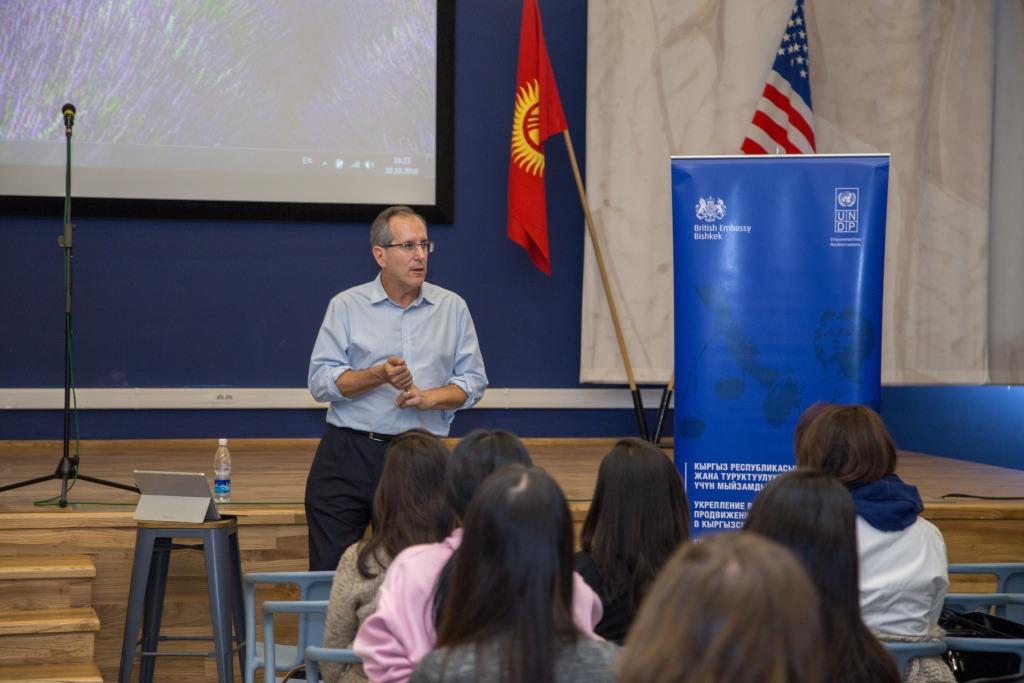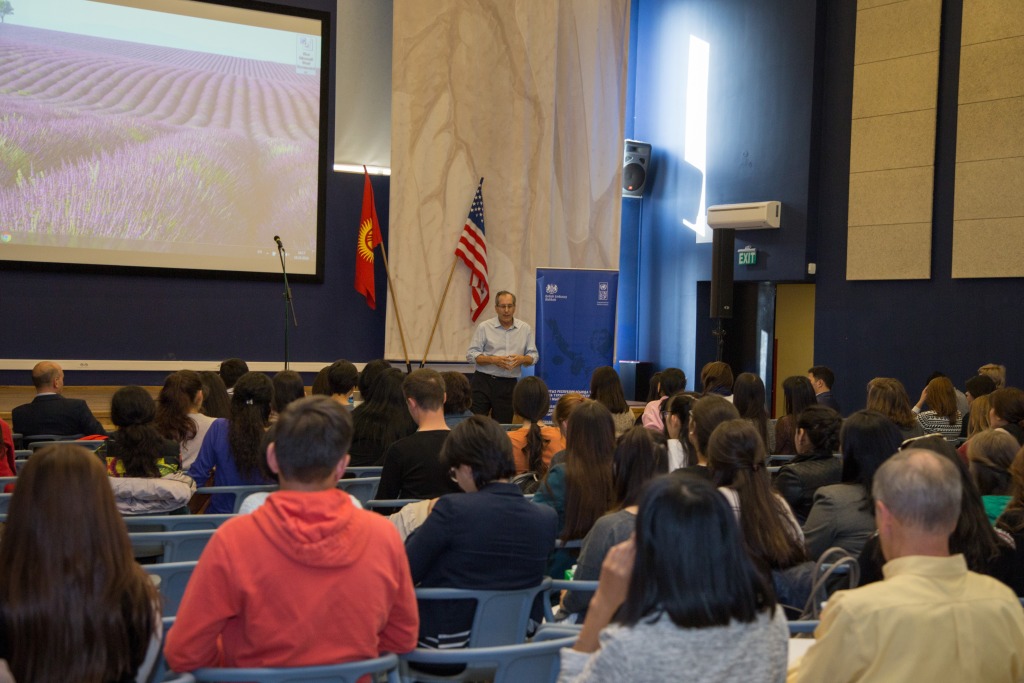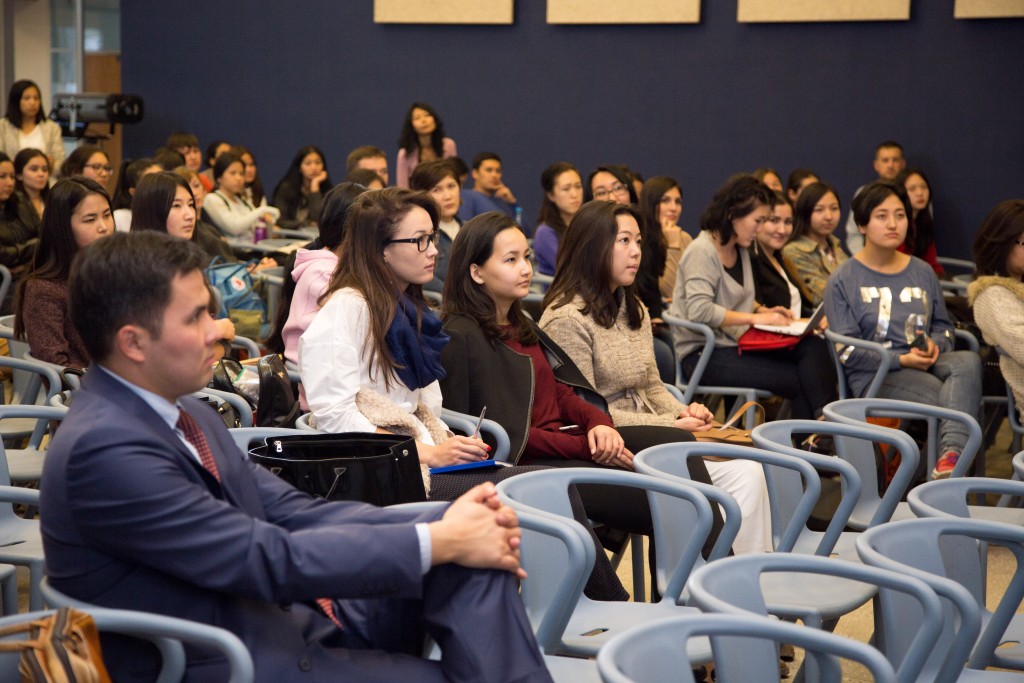October 21, 2016
On October 10, 2016, Stephen Golub, a researcher, consultant, and scholar of international development, delivered a lecture at American University of Central Asia (AUCA) entitled “A View From the Field: How International Development Aid Really Works... and How It Should.” Building on his experience, Mr. Golub offered a critical look at the dynamics influencing international aid, the factors affecting how projects really perform on the ground and how the field can be improved to perform more effectively in benefiting the countries and populations it aims to serve. He particularly examined how this plays out in the legal and governance fields, with attention to the emerging approach known as legal empowerment, a growing international effort to integrate rights and development in ways that yield concrete benefits for people.

“The audience was active. I was very impressed by it. Students asked very good questions, in fact I would say all the questions were good, some of my answers were not this good as the questions. But still I really appreciate the discussion. In some ways Kyrgyz students are not different at all from students of my home country. They ask challenging questions, expressed their opinions even if they might have disagreed with me. In that respect, students were very similar to American students and students in many other countries. Sometimes students of some parts of the world are very shy about the asking questions. That is not a criticism, it is just the way they are. But not the students here, and they were great!
“This is the first time I have ever been here in Kyrgyzstan and Central Asia. I am here only a very short time – 36 hours. What I have seen so far are some very bright people, beautiful mountains and a couple of good meals including Kyrgyz food. I need more time to develop my impression. For now, all my impressions are positive,” said Golub.

Besides students of AUCA, students from the International University in Central Asia attended Golub’s lecture. Students were active and asked Golub, not only during the lecture, but also after it ended. They shared their thoughts on the talk:
“The criticism by Stephen Golub was well-grounded and plausible, considering that he has expertise and he has seen the whole situation in practice. I remembered the following theses:
- International organizations are working in automatic mode, without carrying out the appropriate research and analyses.
- Organizations should work not only with public authorities, but with common people too. There must be a balance. I fully agree with this. For instance, if you teach common people and tell them about their rights, the probability that they will demand the recognition of their own rights will be much higher,” said Benazir Kabaeva, a senior in International and Comparative Politics.
“The lecture was about international organizations and their activities. The lecturer criticized them. Before this lecture, I attended another on same topic. In that lecture, the professor said sponsorship is not always good; each organization may have its own interests. I was surprised when another professor confirmed it. The lecture was very useful for me. We, young people, are the future of our country, so we must be able to improve it. To do so, we need to have analytical skills. These kinds of lectures are very helpful. Yes, we read many of articles, but when a professor or outstanding activist tells about it him or herself, our confidence is much higher and we can ask questions right here,” said Salima Arzymatova, a sophomore of International and Business Law.

Stephen Golub is an international development scholar, researcher and consultant who has field experience in over 40 countries across the globe; authored dozens of papers on democracy, governance, legal empowerment and the rule of law; and edited several volumes on these topics. He has taught at the Central European University, Tufts University and the University of California at Berkeley. The organizations with which he has worked include Amnesty International; the Asia, Ford and Open Society Foundations; the Asian Development Bank; the Carnegie Endowment for International Peace; the Danish, Norwegian, United Kingdom and United States development agencies; the International Development Law Organization; UNICEF; the U.N Development Programme; the World Bank; many additional development organizations, NGOs and policy institutes; and several law ministries, court systems and other government institutions.